Black History: What are the Brixton station statues?
- Published
- comments
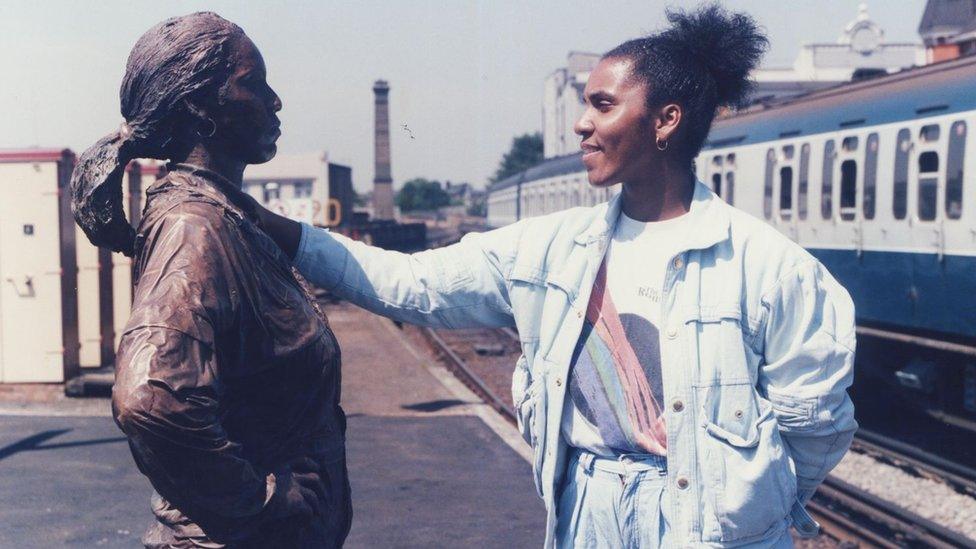
Joy Battick was 26 when the first statue of her was made
Three statues that are thought to be the first sculptures of black people in the UK are being returned to a train station in Brixton, in London.
The statues show three people that lived in Brixton in the 1980s.
In 2016, they were taken down for refurbishment - which means they were cleaned and looked after.
Now they will be coming back to Brixton station with a new extra statue - called Joy II.
Who are the Brixton statues of?
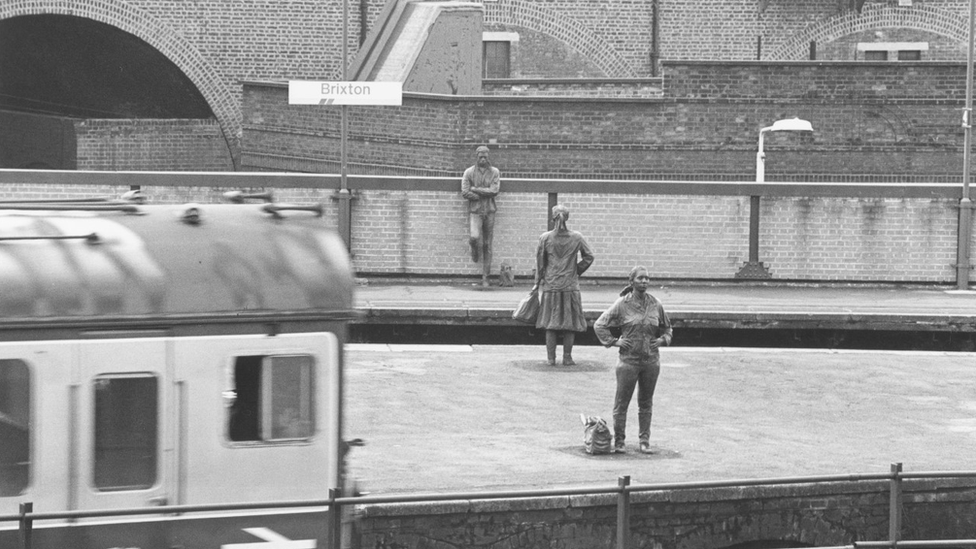
The statues were put up during an important time for Brixton's history
In 1986 artist Kevin Atherton was chosen to put together some art for Brixton train station.
He made statues of three people who had a connection to Brixton - Peter Lloyd, Joy Battick and Karin Heistermann.
In 2016, the statues were given a special 'listed' status from Historic England - the organisation that manages historical sites and objects in England.
When something is 'listed' by Historic England it means it has special importance to our history and is protected.
A new statue of Joy
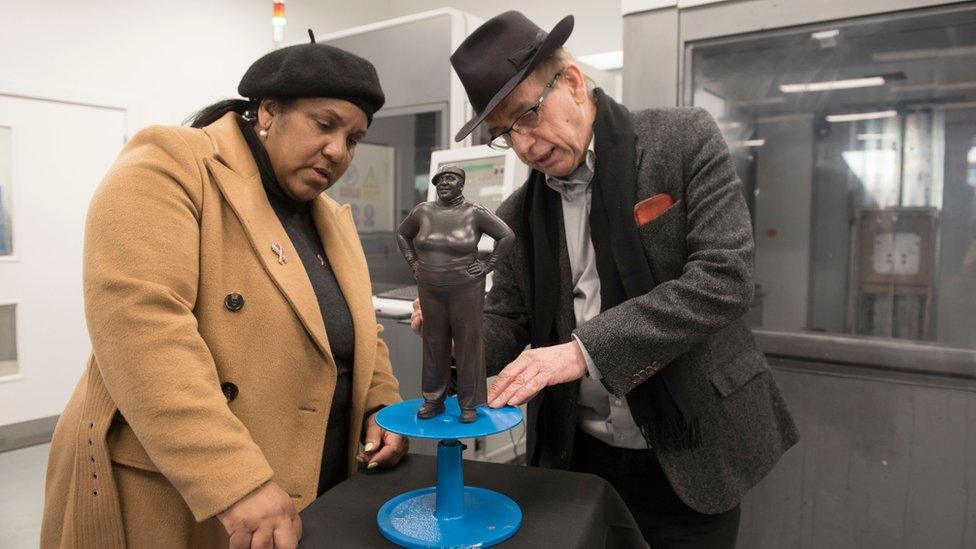
Joy Battick - who is shown on one of the statues and artist Kevin Atherton met again after 35 years to create another version of Joy
When the statues are put back into Brixton station, they will be joined by a brand new one - called Joy II.
It's an updated statue of one of the original statue models - Joy Battick. She was 26 when the statues were first made.
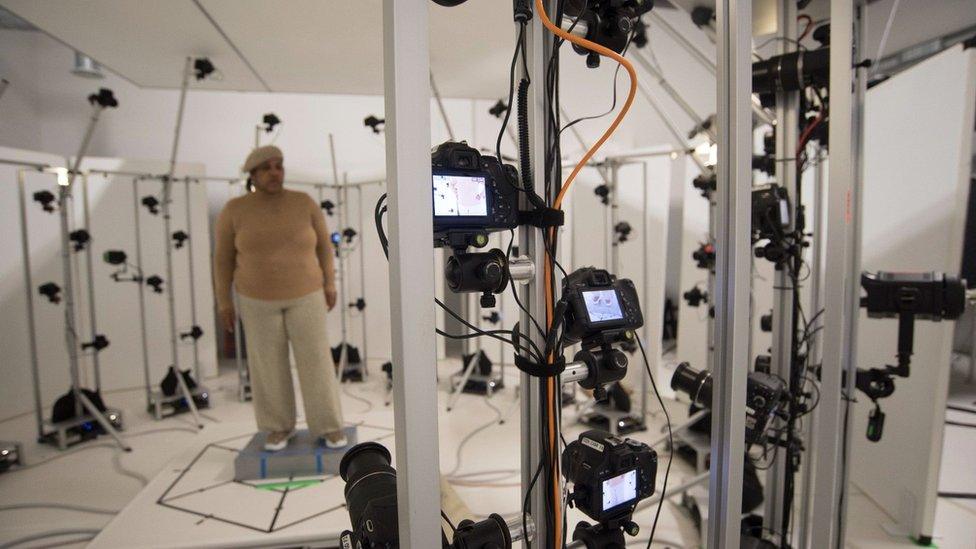
Kevin used a special set of 3D cameras on Joy to create the statue
Kevin wanted to show Joy reflecting on her life and looking towards her future.
"Joy is looking at her younger self, but she's also looking at herself that's yet to be."
Someone's culture can be made up by a lot of things - their interests, where they were born, the language they speak, or the people they grew up around.
Culture also can have a bigger meaning - when people in an area have made an impact, you would say that place has cultural importance, because of the things that came from there.
Politics, music, art, buildings, environment and people in an area are all part of what helps to develops its culture.
The 'first black history statues'
The statues were listed because historians think they were the first sculptures of black people made in the UK.
This is important to people in Brixton - and black people around the UK - because of the cultural history and importance of Brixton.
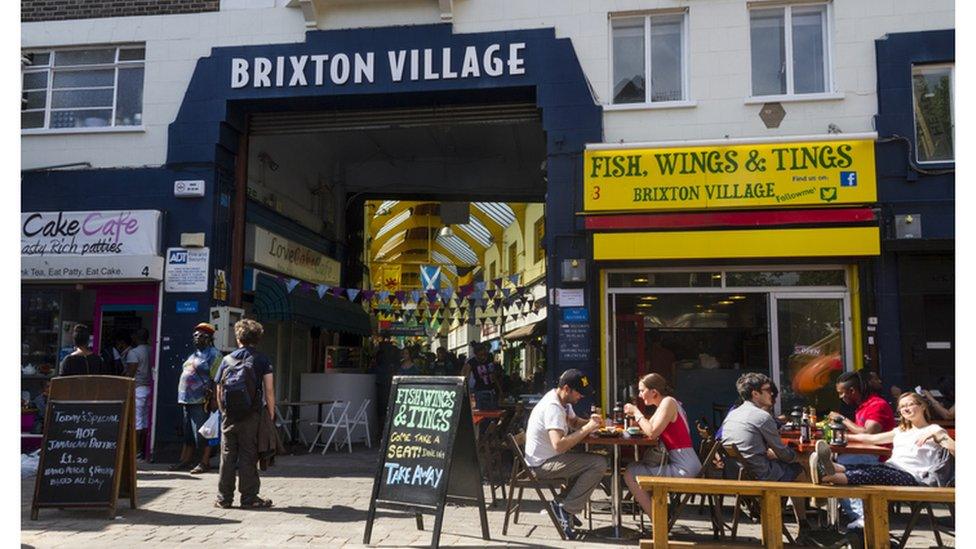
Brixton is in South London, and is home to over 78,000 people!
After the second world war, Brixton developed as a place with a large Afro-Caribbean community.
However, in the 1980s, the area was suffering from economic problems, and there were clashes between the police and the people that lived there.
When Kevin Atherton made the statues it was during this difficult time - and by choosing regular members of the community, he wanted to show the cultural importance of Brixton.
- Published25 January 2023

- Published23 January 2023
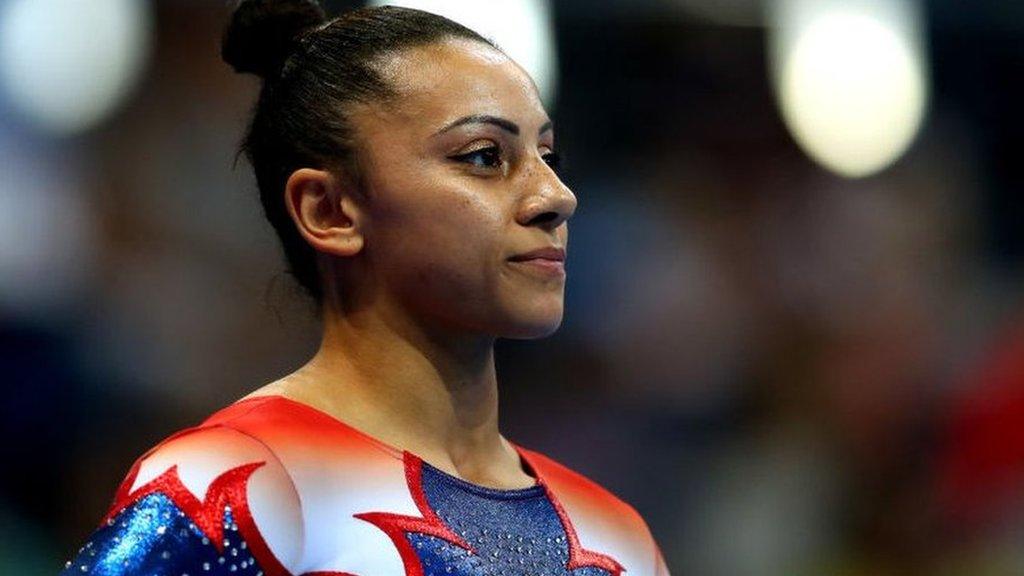
- Published25 January 2023

